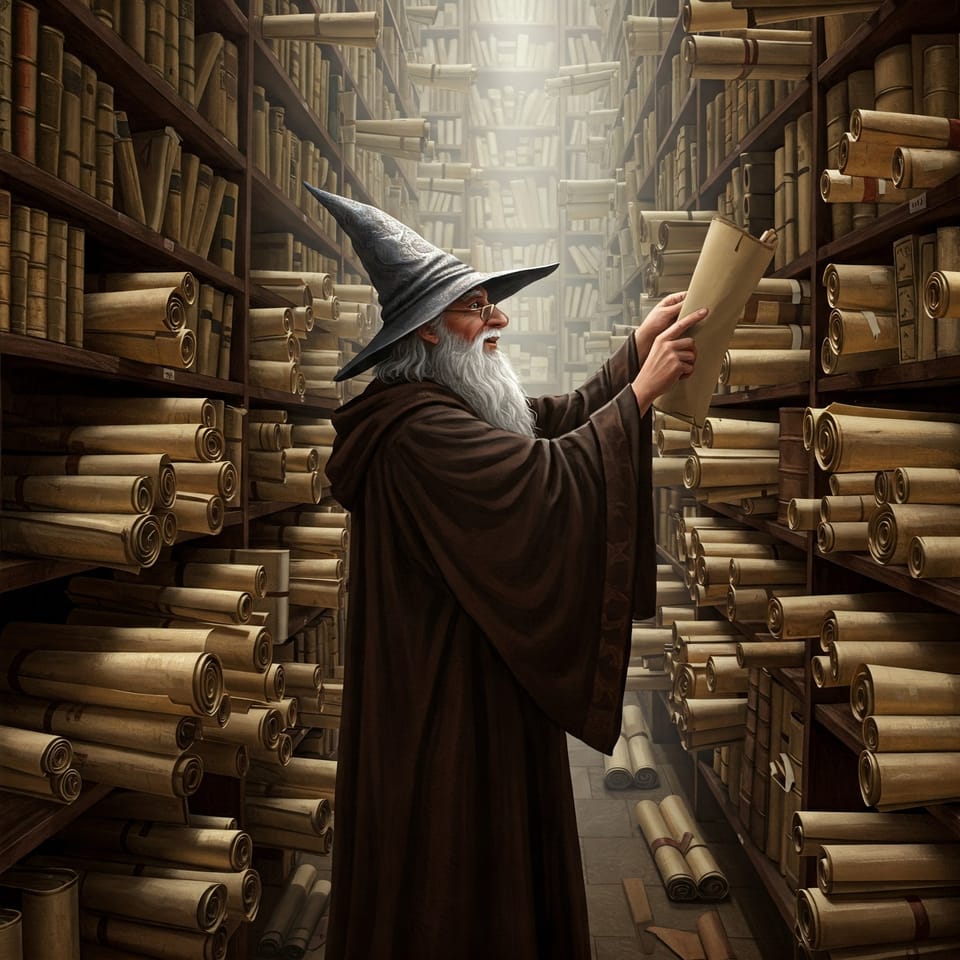
02.27.2022 - Scrolling in the Scriptorium
Kevin Koperski
Feb 27, 2022 • 2 min read
Today I'm listening to an audiobook of The Swerve, which I find delightful and informative. The opening chapters deal at length with old manuscripts and the monks who copied them in the fifteen century. I came across a brilliant bit of wordplay, but first, to set the scene:
In charge of the scriptorium was the person on whom Poggio and the other book hunters would have focused their most seductive blandishments: the monastery's librarian. This important figure would have been accustomed to extravagant courtship, for he was responsible for providing all of the equipment that was required for the copying of the manuscripts: pens, ink, and penknives whose precise merits or defects would become overwhelmingly obvious to the laboring scribe after a few hours at the day's task. The librarian could, if he wished, make a scribe's life miserable or, alternatively, provide a favorite with particularly fine tools. Those tools also included rulers, awls (to make tiny holes for ruling the lines evenly), fine-pointed metal pens for drawing the lines, reading frames to hold the book to be copied, weights to keep the pages from turning. For manuscripts that were to be illuminated, there were still other specialized tools and materials.
After this illustration of life in the monastic library, we get a delightful bit of history that ends with a connection I hadn't made in the past.
Most books in the ancient world took the form of scrolls like the Torah scrolls that Jews use in their services to this day-but by the fourth century Christians had almost completely opted for a different format, the codex, from which our familiar books derive. The codex has the huge advantage of being far easier for readers to find their way about in: the text can be conveniently paginated and indexed, and the pages can be turned quickly to the desired place. Not until the invention of the computer, with its superior search functions, could a serious challenge be mounted to the codex's magnificently simple and flexible format. Only now have we begun once again to speak of "scrolling" through a text.
And that's today's moment of delight.